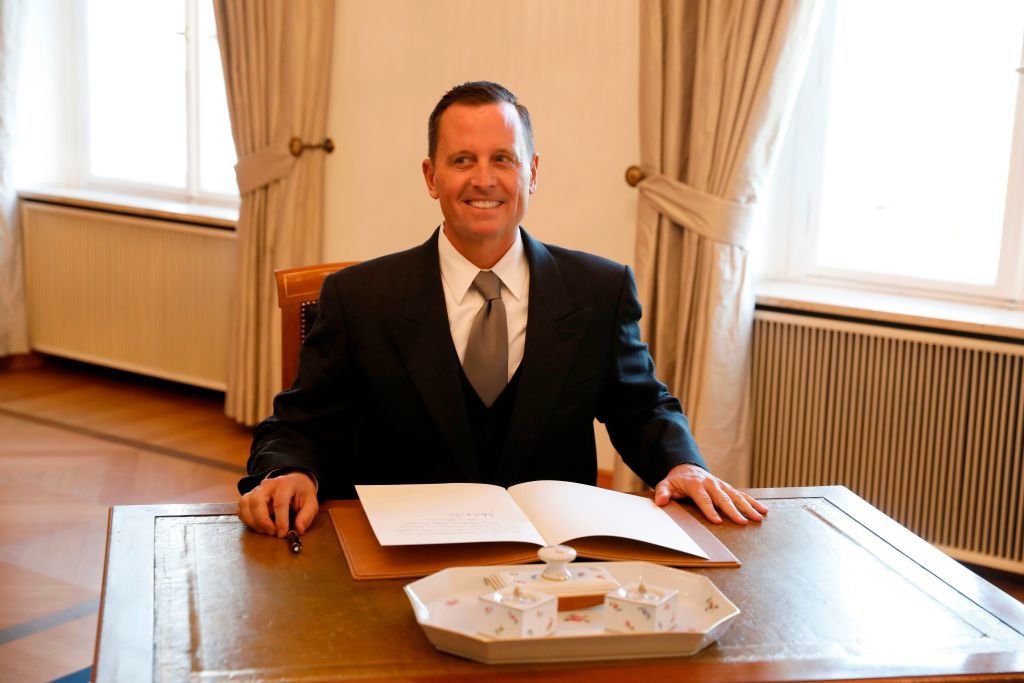Does Richard Grenell, the American ambassador to Germany, want to carry out another round of regime change in Deutschland? This is the construction that is being placed upon his temerarious remarks to Breitbart by many German politicians about his desire to support the populist right across Europe: “I absolutely want to empower other conservatives throughout Europe, other leaders. I think there is a groundswell of conservative policies that are taking hold because of the failed policies of the left.” In his view, the avatars of a new Europe are figures such as the young prime minister of Austria Sebastian Kurz, who ran on a strongly anti-immigrant platform.
The outrage was instant, partly because Grenell’s comments came right on the heels of some flippant remarks by Alexander Gauland, a leader of the right-wing Alternative for Germany party, that dismissed the Nazi era as mere “birdshit” in the longer sweep of German history. Gauland was addressing a youth congress of the AfD in the state of Thuringia. He paid homage to the great Jewish historian Ernst Kantorowicz, a notorious nationalist in the 1920s who ended up in exile in the United States, and noted, “We have a glorious history — and that, dear friends, lasted longer than those damn 12 years.” Glorious or not, those 12 years can’t be delicately extracted with tweezers from the rest of German history. Was Hitler really a Betriebsunfall, or mere traffic accident, or did he represent older, illiberal and anti-Semitic traditions?
After Grenell waded into these murky waters with his comments tacitly supporting the German far right, former Social Democratic leader Martin Schulz, who ran and lost against chancellor Angela Merkel in the 2017 federal election, complained, “Grenell isn’t behaving like a diplomat, but instead like a right-wing colonial officer. Ambassadors are representatives of their states and not of political movements.” In Washington, Senator Chris Murphy stated on Twitter, “When I raised concerns to Grenell about politicizing this post, he personally assured me that once he became Ambassador he would stay out of politics. This interview is awful – Ambassadors aren’t supposed to ‘empower’ any political party overseas.” And writing in the Washington Post, Anne Applebaum indicted Grenell for his support for dubious elements in Germany and elsewhere. She essentially accused him of being a political arsonist: “Grenell’s hints were intended for Breitbart’s readers: They know this game, and they know that when Grenell says ‘empowering other conservatives throughout Europe,’ he doesn’t mean that he supports the ruling coalition in the country where he is serving as U.S. ambassador. I repeat: It means that he supports their opponents.”
But Grenell’s comments are only novel in the sense that they are directed at western Europe. Ostensibly, Germany is an ally of America, though Trump’s actions will inevitably prompt it to ponder whether it should begin to regard Washington as an adversary. It would be well within its rights to expel Grenell. Previous American ambassadors, whether in the Soviet Union, Middle East or Soviet Union, have sought to influence the direction of the government’s policies, sometimes by employing what is euphemistically called “public diplomacy.” After George F. Kennan, who was ambassador to Moscow, made some truthful, if intemperate, remarks about the odiousness of living in the Soviet Union to reporters in Berlin, Stalin expelled him in 1952. In his new memoir From Cold War to Hot Peace, former ambassador Michael McFaul recounts how he became persona non grata in Putin’s Russia, a convenient foil for the regime in its crusade against western influence, wherever and whenever it might manifest itself.
Now Grenell seems to have struck a nerve in Germany, where he is rapidly becoming Public Enemy No 1. That an American ambassador, who represents a country that fought to topple the Nazis, would become a water carrier for some of the most retrograde forces in contemporary Europe defies credulity.


















